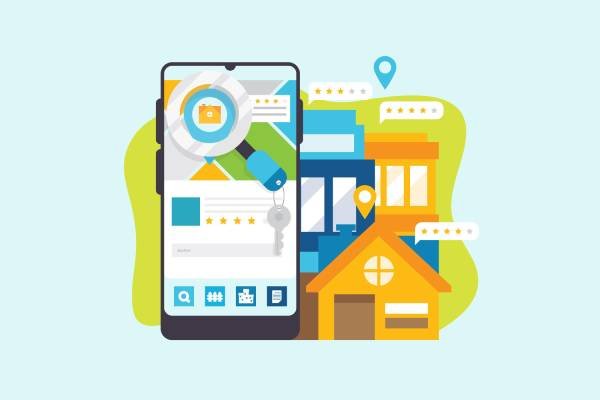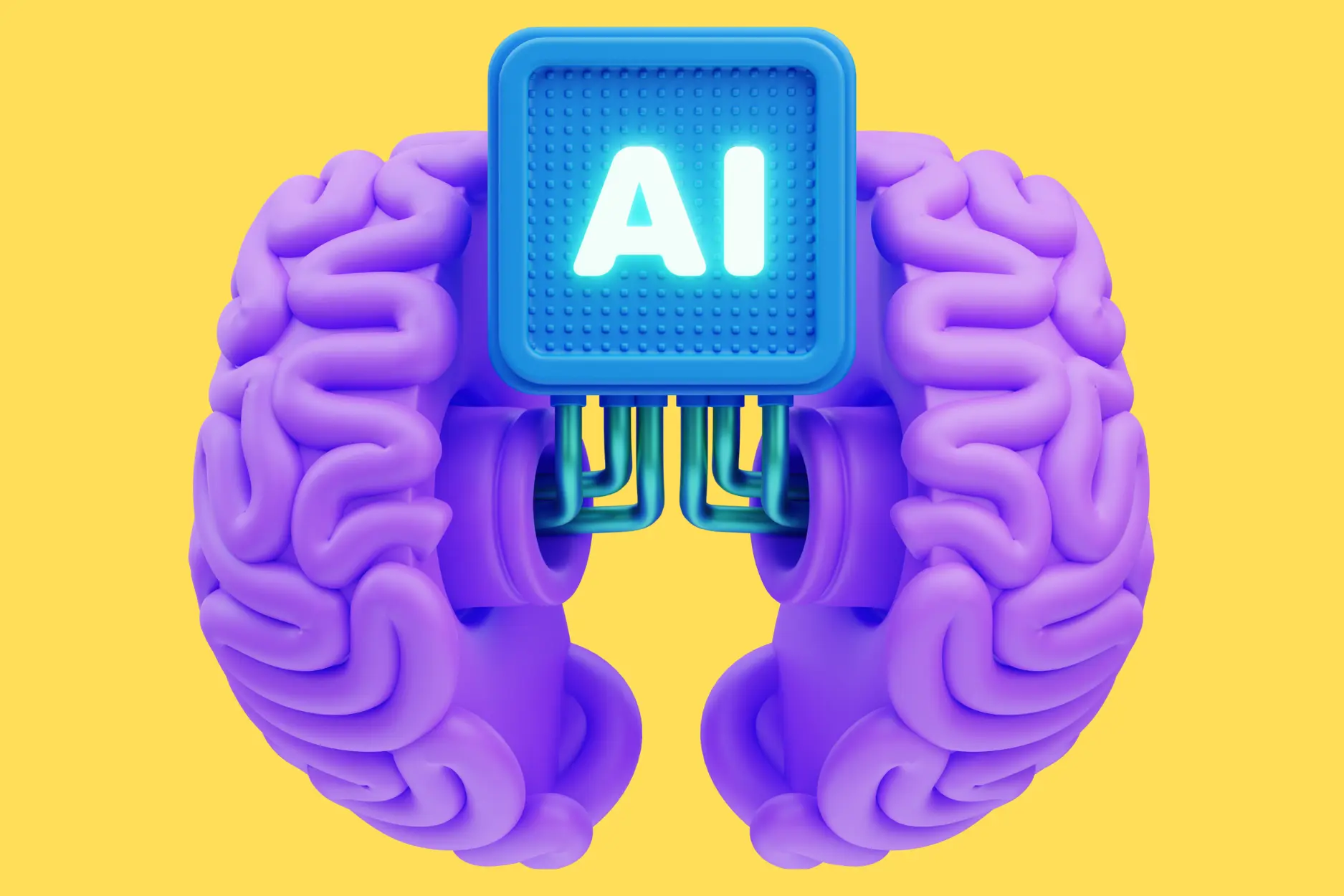Future of AI in Mobile App Development
Mobile apps with AI are starting to become popular in technology. Companies use artificial intelligence in their mobile apps to give individualized user experiences, exclusive features, and interactive designs.
Voice assistants, face editing, e-learning, picture editing, predictive analytics, and automation are just a few of the sophisticated features that artificial intelligence (AI) enables in mobile apps to provide contemporary consumers with. Artificial intelligence is a potent technology that allows mobile apps to fulfill the demands of present users and do sophisticated tasks, making it a noteworthy choice for organizations.
However, because AI is a sophisticated and advanced technology, employing it to design mobile apps demands a high level of understanding and skill. Therefore, this article will cover every crucial detail about the future of AI in app development, should you have plans to create AI-powered applications.
You will better understand the future of AI in app development and its advantages by reading this guide.
What is Meant by AI in App Development?
Utilizing artificial intelligence skills to create mobile applications is known as "AI in app development." It involves designing, planning, coding, and building features driven by AI and ML that aren't achievable with current or conventional technology.
Mobile app developers can employ AI algorithms to create intelligent functionality and novel features. Mobile apps with AI capabilities can make judgments based on real-time data and adjust to various needs.
These features enable mobile apps to be very intelligent and efficient and to successfully utilize other upcoming technologies such as wearables, blockchain, AR/VR, and the Internet of Things. As a result of AI's growing use in the sector, it has become one of the top trends in mobile app development for 2024.
Future of AI in Mobile App Development
AI's prospects for use in mobile app development are bright. It's changing how applications communicate with users and enhancing their general functioning. AI-powered mobile apps will become more individualized and user-friendly. Adaptive machine learning techniques will enable them to more accurately anticipate consumer requirements and preferences.
This implies that applications will do more than carry out user orders; they will also learn from user behavior, make suggestions on their initiative, and automate repetitive chores. AI-powered analytics will enable developers to learn more in-depth details about user behavior.
It will allow programmers and AI app development firms to continually enhance user engagement and optimize app features. Furthermore, AI will be essential in improving app security because of its intelligent features, which can instantly identify and neutralize possible threats.
Therefore, as AI develops further, its incorporation into mobile app development will usher in a new era of smarter applications and establish new benchmarks for creativity and effectiveness in the sector.
[ Also Read - Complete Guide To Mobile App Marketing In 2024 ]
Integration of AI in Various Industries
AI is transforming the creation, usage, and design of mobile apps. As AI technology advances, mobile app developers look at new approaches to incorporate AI in app development.
Manufacturing, healthcare, and logistics are just a few of the initiatives that might undergo a change thanks to the fast-developing field of AI and IoT integration. IoT devices produce large volumes of data, and artificial intelligence (AI) may be used to evaluate and understand this data, making the devices smarter and more responsive.
- Predictive maintenance: AI can evaluate data from Internet of Things (IoT) devices to forecast necessary maintenance, reducing downtime and increasing operational effectiveness.
- Autonomous systems: AI may be used to provide Internet of Things (IoT) devices—like self-driving vehicles and drones—the ability to make judgments and operate without human involvement.
- Healthcare: AI may be used to remotely monitor patients using Internet of Things devices, allowing for the early identification of health problems and better patient outcomes.
- Supply chain management: Artificial intelligence (AI) may be used to monitor and evaluate data from Internet of Things (IoT) devices, assisting in optimizing inventory levels, cost reduction, and delivery times.
- Smart homes and buildings: Artificial intelligence (AI) can potentially improve energy efficiency and save costs in smart homes and buildings by controlling and optimizing energy use.
Although AI and IoT integration is still in its infancy, it has the potential to revolutionize several sectors and enhance our daily lives. Future discoveries should be much more fascinating as AI technology develops and more IoT devices go online.
The complexity of the project and the team's degree of experience can significantly impact the time it takes to develop AI integration.
How to Utilize AI in App Development?
AI is making apps smarter. It's like teaching your phone to think and learn. There are a few main ways to do this:
- Machine Learning: Apps can learn from data to make predictions. For example, suggesting movies you might like or understanding your voice commands.
- Computer Vision: Apps can see and understand images and videos. This is used to unlock the face or find objects in pictures.
- Natural Language Processing: Apps can understand and respond to human language. This is how chatbots and voice assistants work.
- Predictive Analytics: Apps can predict what you want or need, which helps them show you personalized offers or content.
Increased Use of Natural Language Processing
Our interactions with technology are changing due to the growing usage of natural language processing, which makes it more intuitive and user-friendly. Among the methods NLP is being applied to enhance the creation of mobile apps are:
- Chatbots: Chatbots may converse with users in natural language by using natural language processing (NLP) to comprehend and interpret written text. AI in app development may use chatbots to conduct transactions, respond to user inquiries, and offer customer service.
- Translation across languages: It has real-time text translation capabilities. This technology allows mobile app developers to produce multilingual applications that users worldwide can utilize.
- Sentiment analysis: Natural language processing (NLP) may be used to assess the sentiment of user-generated material, such as reviews, social media postings, and other types of information. Mobile app developers may use this data to enhance their products and respond to customer feedback.
AI-Powered Mobile App Features
AI-driven features have completely changed how we use mobile applications, from voice recognition, chatbots, and individualized content to picture identification, predictive analytics, and chatbots.

1. Individualized content
Machine learning algorithms that examine user data, including browsing and search history, purchase history, and more, are the technology underlying personalized content. This information may then be used to determine the material that these algorithms indicate the user would likely find interesting.
For instance, a music streaming app can utilize customized content to make unique playlists based on a user's listening habits and history. According to the user's location and interests, a news app can also employ personalized content to provide news articles.
2. Voice Recognition
One of the most important uses of AI in app development is voice recognition. It enables speech interaction with mobile devices, which is quicker and more convenient than tapping or typing. Even though natural language processing (NLP) and machine learning have been around for a while, recent advancements have increased the responsiveness and accuracy of speech recognition technology.
3. AI Chatbots
Providing outstanding customer service and a flawless user experience are essential in the fiercely competitive mobile application industry. But having an agent team on duty around the clock may be expensive, especially if most questions can be resolved quickly.
This is where chatbots with AI capabilities can be helpful. With the help of these clever technologies, your mobile application may use natural language processing to automate answering consumer inquiries. All the system has to do is decipher the question, find the pertinent data, and present it to the user in the most appropriate manner, given the context.
4. Image Recognition
Numerous mobile applications, such as those for social networking, e-commerce, and healthcare, can use this technology. Image recognition teaches machine learning algorithms to identify particular photograph characteristics or patterns.
An eCommerce software, for instance, might employ picture recognition to let customers upload images to search for items. Users can easily find what they seek since the software can analyze the image and identify the goods. A healthcare app may analyze medical photos, such as X-rays or MRIs, using image recognition to spot any health problems.
5. Predictive Analytics
One of the greatest applications of AI and ML is predictive analytics. It makes it possible for mobile apps to gather user data intelligently and provide customized offerings. By incorporating artificial intelligence (AI) into their development process, mobile applications may more effectively monitor user activity patterns and present content that piques their interest. This aids in user engagement and raises conversion rates for mobile apps.
[ Also Read - ASO Strategy to Grow Your App in App Stores in 2024 ]
Top Benefits of AI in App Development
With the increasing use of AI, mobile apps are becoming more sophisticated and better. Mobile applications with AI capabilities that enable users to conduct fascinating tasks like voice assistance, face editing, language learning and more are in high demand right now.
Artificial intelligence has been used in applications by several businesses and organizations to automate various tasks. The most well-known AI-based smartphone applications available today are Google Assistant, Amazon Alexa, Replika, FaceApp, SnapChat, Duolingo, and Lensa.
These apps have seen significant gains in productivity and performance. Today's startups seek to collaborate with leading mobile app development firms to create business-focused, AI-powered mobile applications. What accounts for the growing use of AI in app development? Here are the top benefits:
1. Gain A Better Understanding of User Behavior Patterns
For companies, creating a successful marketing plan depends critically on a solid understanding of consumer behavior. A mobile app can offer helpful data analytics only if it can understand users' activity patterns. Smartphone apps that employ AI can precisely record users' activity patterns.
It tracks the actions users take within the app using natural language processing and machine learning techniques. App developers may utilize this data to understand their users and consumers better and provide them with individualized experiences. For instance, when users search, the Netflix app employs AI algorithms to gather information about their likes and preferences and suggest possibilities. Thus, artificial intelligence greatly contributes to the improvement of app customization.
2. Conversational UI
Conversational UI is among the main advantages of using AI in app development. Interactive mobile applications are highly favored by today's consumers. Many AI programs, such as Duolingo, Google Assistant, Alexa, and others, have conversational user interfaces (UIs) that simulate human speech. This functionality allows mobile apps to communicate with users more simply and efficiently, providing an engaging user experience.
AI-based conversational user interface (UI) is widely used by businesses and corporations in their chatbots to improve online customer support. It's also noteworthy that AI chatbots have significantly improved business services.
3. Automated Reasoning
Complex in-app functions in conventional mobile applications demand extensive coding and programming work. Developers frequently need to use various tools and SDKs to incorporate sophisticated or intelligent reasoning capabilities into mobile apps. However, engineers may generate intelligent, automated reasoning with artificial intelligence.
This makes it possible for mobile apps to operate fast and precisely. For example, Uber and other taxi booking applications employ artificial intelligence (AI) to plan routes. Thanks to AI and ML algorithms, this task is completed in seconds.
4. Advanced Security
Securing user data is becoming increasingly difficult as more people utilize mobile apps. Mobile applications need to abide by a number of data rules and regulations. Here, mobile apps with advanced security features benefit from artificial intelligence.
AI in app development facilitates biometric authentication to confirm user identification and authorize data accessibility. Advanced security features like voice recognition, gesture control, facial identification, and sensory recognition are all in mobile apps driven by artificial intelligence. These qualities fortify the data, protecting it from external cyber threats and hackers.
5. Increase Automation while Keeping Human Contributions
AI in app development helps people make smarter judgments. It has reduced the requirement for human analysis input. Artificial intelligence (AI)- driven tools and gadgets minimize human intervention while optimizing results for the good of humanity.
It's crucial to remember that artificial intelligence (AI) may be developed to cooperate with people rather than completely replace them. Technology may be improved by adding human inputs, such as supervision and feedback, to better suit human requirements and values.
6. Personalized and Intelligent Suggestions
Following the app launch, many firms consider user preferences to boost website traffic and revenue. If your app is domain-focused, you may provide users with intelligent suggestions based on their past browsing activity. Artificial intelligence (AI)- powered solutions can increase the possibility of engagement and conversions by using user data analysis to generate intelligent suggestions for goods or services that the user would find interesting.
The Difficulties of Including AI in Mobile App Development
Integrating artificial intelligence (AI) into app development presents various obstacles.
1. AI algorithms' complexity
Because AI algorithms are complicated, maintaining and using them requires specific knowledge. For their app's features to function properly, developers might need to cooperate with outside AI suppliers or recruit AI specialists.
2. Concerns about data privacy
Because AI-enabled applications frequently need to gather and store significant volumes of user data, there are privacy risks connected with them. App developers must ensure that user data is transparently collected and used, adhering to all applicable privacy laws to allay users' fears. To guarantee that the advantages of AI in mobile app development outweigh the related costs and dangers, addressing these issues needs careful preparation and execution.
3. Cost
One of the main obstacles is the expense of incorporating AI into mobile app development. Creating AI-powered applications requires a lot of effort and complicated algorithms, which raises the cost of development.
Is it possible to employ AI to ensure the quality and testing of mobile apps?
Mobile app testing may greatly benefit from artificial intelligence's potent capabilities. With its help, several testing jobs may be automated, raising the accuracy and efficiency of testing. Without human assistance, AI is capable of continually running automated testing. Large test suites may be executed with ease using AI test scripts. They can properly verify that an app works on many devices and environments.
Apps may be assessed for performance under stress and heavy loads using AI. AI in app development is capable of massively simulating real-world use scenarios. This finds bottlenecks in performance before release. Thanks to Visual AI, apps may now be automatically checked for UI and UX problems. AI computer vision examines interface components and displays.
It finds aesthetic flaws or departures from the design specifications. App data may be analyzed for abnormalities using AI methods like machine learning. This makes it possible to choose and prioritize test cases intelligently. ML assists in concentrating testing efforts on the most important locations.
Artificial intelligence's speed, size, and intelligence benefit mobile app testing procedures. However, there are benefits and drawbacks to using AI to create mobile apps. There are various ethical and data privacy issues to be aware of. AI is a force multiplier, not a full substitute for human testers. It enables higher-quality apps to be released more quickly.
[ Also Read - Why Your Startup Needs an MVP ]
Final Thoughts
Artificial intelligence is a highly imaginative and revolutionary technology. It has several sophisticated features and functionalities that enable a system or application to perform at a higher level. Businesses and developers may create feature-rich, high-performing mobile apps by utilizing AI in app development to tackle a variety of difficulties.
Consequently, there is a rapidly increasing need for AI to be included in mobile app development. However, since it takes a lot of knowledge, creating AI-powered apps might take a lot of work for startups and business owners. As such, it makes sense to enlist the help of a top mobile app development firm like IPH Technologies to help you create an AI-powered mobile application for your business plan.
Frequently Asked Questions

Read more blogs

Time and Cost of Developing an AI like ChatGPT: Key Factors Explored
Explore the factors influencing the time and cost of developing an AI model like ChatGPT. Understand key considerations for successful AI ap

Guide to Successful Real Estate App Development: Features, Technologies, and More
Explore the advantages of developing a real estate app, key features, technologies to employ, and the importance of collaborating with a Rea

Custom vs. Template-Based Website Development: A Comprehensive Cost Comparison Guide
Explore the costs, pros, and cons of custom website development vs. template-based solutions. Make an informed decision for your online pres
